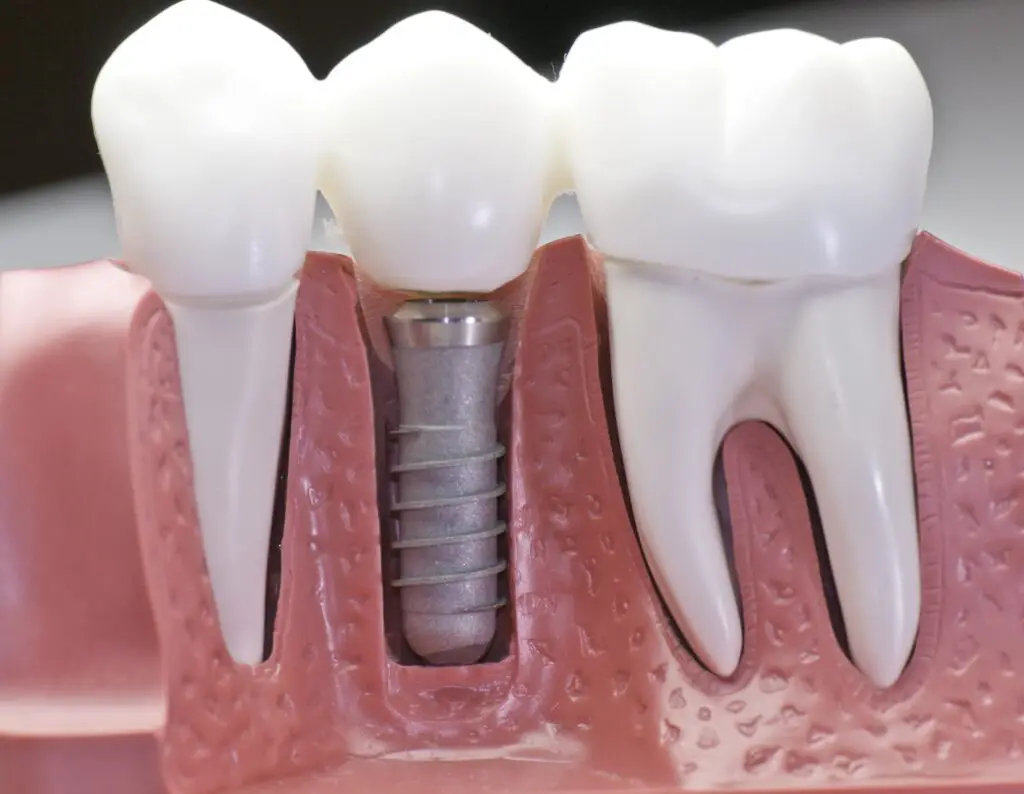Dental implants are an excellent option for missing, chipped, or cracked teeth. They can last a lifetime with proper care, and they’re identical to natural teeth in appearance and function. Dental implant surgery is a major procedure, though, and the recovery can be lengthy. Before you undergo the surgery, you and your dentist will discuss what you should expect during and after the process. Here are four facts you should know about dental implant recovery:
1. Your jawbone must grow around the implant.
The exact amount of time it takes to recover from implants varies from person to person, but it typically takes several months. For the implant to settle into your jaw, the bone has to grow around it and fuse to the titanium post. This is a very slow process, so you should expect to wait a few months before you can get the crown attached to the top of the implant.
2. The number of implants you receive affects your recovery time.
Having just one implant placed in your jaw is much less strenuous for your body, so the recovery will be significantly faster. However, if you need several implants, you should expect a longer recovery time.
3. Some bleeding is normal.
A small amount of bleeding is expected in the day or two following dental implant surgery. You can control the bleeding by biting down on a piece of gauze. If the bleeding is extreme or lasts for more than a day or two, you should contact your dentist. Excessive bleeding may be a sign that the implant isn’t healing properly.
4. Recovery will affect your diet.
Like with most oral surgeries and dental procedures, you’ll have to be mindful of what you eat and drink in the days after getting dental implants. You should drink plenty of fluids, but you should avoid using a straw as the suction could remove the blood clots and cause bleeding. Your food intake will probably be limited right after the surgery, too. You should stick to soft items, like soup, pudding, and ice cream.
When you get dental implants, it’s critical that you plan in advance for your recovery. By setting aside time to rest and take care of yourself, you’ll ensure that your mouth and jaw heal properly. If you have any questions or concerns about the recovery process, consult with your dentist before your surgery.

